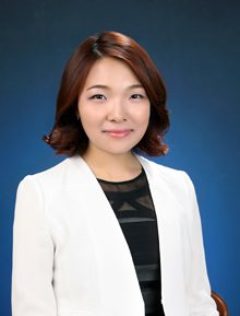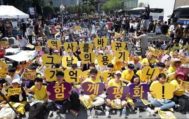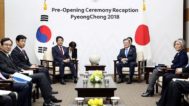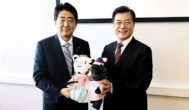Authors
Kyuri Park

Kyuri Park is a Ph.D. student in the Political Science and International Relations program at the University of Southern California. Her research revolves around international relations in East Asia, hierarchy, and democratic accountability in foreign policy. She received her M.A. in Asian Studies at Georgetown University and her B.A. in International Relations from Ewha Women’s University in Seoul, South Korea.
Articles by Kyuri Park

Japan - Korea
May — August 2018Back to Normal Business
Korea-Japan relations returned to normal over the summer months as Pyongyang-Tokyo relations remained at a standstill and Seoul-Tokyo relations followed the dual track approach. For both Pyongyang and Seoul, the primary demand is for Japan to offer an acceptable apology and compensation for Japan’s actions during its colonial rule of the Korean Peninsula. Pyongyang demanded atonement for Japan “war crimes” as the basic condition for the resumption of dialogue between the two countries. Seoul urged Japan to sincerely apologize to Korean women forced into wartime sexual slavery, saying that the issue cannot be resolved diplomatically. Other sources of contention for North Korea-Japan relations are Japan’s support for UN sanctions against the DPRK and Pyongyang’s unwillingness to account for past abductions of Japanese citizens. In the case of South Korea-Japan relations, the disputes over Dokdo/Takeshima and biased history textbooks lingered, although both sides made efforts to strengthen economic, security, and cultural ties despite those issues.

Japan - Korea
January — April 2018The North Korea Factor
In the first four months of 2018, Japan’s relationship with South Korea was influenced more than ever by North Korea as a thaw in inter-Korean relations created a new dynamic for Japan-Korea relations. The shift began with Kim Jong Un’s expressed hope for improvement in Seoul-Pyongyang relations and inter-Korean talks in his 2018 New Year’s speech. The PyeongChang Winter Olympics created significant momentum and the inter-Korean summit in late April put an exclamation mark on the dramatic turnabout. While Moon Jae-in’s administration welcomed the initiative from the North with guarded optimism and facilitated the improvement in relations as the gracious host for both the Olympics and the summit, the Abe administration kept a skeptical and indeed critical stance toward North Korea’s “charm offensive.” However, Japan was forced to move away from its hardline policy in the face of inter-Korean bonhomie and when the US recognized the shift as an opportunity to move toward diplomacy with North Korea.

Japan - Korea
September — December 2017Continuation of Dual Track Approach
In the final four months of 2017, South Korea-Japan relations continued on the same trajectories as they had over the summer – both countries adopted a dual-track approach to bilateral relations. While controversy over the comfort women issue and Dokdo/Takeshima continued with numbing predictability, Seoul and Tokyo moved forward in developing what they called a “future-oriented relationship” centered on economics and North Korea. While officials on both sides regularly expressed hopes for reviving high-level shuttle diplomacy, the most significant element of the past few months has been how directly Washington was influenced by, but also influenced, Seoul-Tokyo relations. Although it has been an important element in Korea-Japan relations since the end of the Pacific War, recent events have demonstrated the importance of the triangular relationship.

Japan - Korea
May — August 2017On Board for a Dual Track Approach
With the inauguration of Moon Jae-in in South Korea on May 10, relations between Seoul and Tokyo witnessed a significant turnaround over the summer months of 2017. In particular, the dispute over the “comfort women” agreement reached in 2015 escalated as the Moon administration reversed course, launching a task force on July 31 to review the agreement. Meanwhile, concerns that measures the Park administration had adopted to improve security ties with Japan might be revoked were dispelled when Seoul and Tokyo agreed to maintain close security cooperation on the North Korea issue. In addition, despite the continued tension over Dokdo/Takeshima and Japan’s wartime crimes, Seoul and Tokyo chose to “pursue forward-looking relations” through diplomatic exchanges. Given that the Moon administration has indicated that it wants relations to go smoothly regardless of the comfort women issue, we expect diplomatic exchanges and security cooperation to continue. Sustained improvement will depend on South Korea’s “final” decision on the 2015 comfort women agreement.